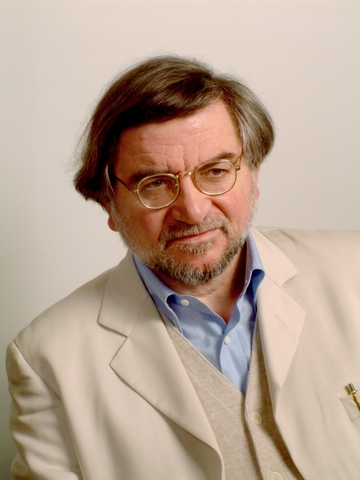
We get interesting mail. A reader writes to share something we didn’t know: In 2012, Italian theoretical biologist Marcello Barbieri resigned as editor of the journal Biosemiotics because he felt that research in this area had become unscientific. In his view,
The agreement to do so was reached in June 2004, at the fourth Gathering organized by Anton Markoš in Prague. Jesper Hoffmeyer, Claus Emmeche, Kalevi Kull, Anton Markoš, and I met in a pub and decided that what was uniting us—the introduction of meaning in biology—was far more important than our divisions. Up until then, I had been referring to the study of biological meaning as semantic biology, whereas Markoš was calling it biohermeneutics, but we agreed to give up those favorite names of ours and to adopt the term biosemiotics that Sebeok had been campaigning for with so much passion and vigor.
That is how I came to be the founder and first editor-in-chief of the Springer journal Biosemiotics, and although I campaigned for a mechanist approach to meaning I made sure that all schools of biosemiotics were equally represented in the journal, in the hope that in the course of time they would converge toward an increasingly scientific enterprise.
But that, unfortunately, did not happen. The number of biosemioticians that endorsed a nonmechanistic view steadily increased, and biosemiotics became increasingly identified with the idea that the cell is capable of interpretation, in line with the Peircean concept that there is an “extended mind” in the universe.
It became painfully clear to me that a scientific approach to meaning could not survive in that framework, and this is why, at the end of 2012, I resigned as editor-in-chief of Biosemiotics and together with eleven colleagues founded the new research field of Code Biology, a field that was explicitly defined in the constitution of our society as “the study of all codes of life with the standard methods of science.”
Barbieri, M. Code Biology, Peircean Biosemiotics, and Rosen’s Relational Biology. Biol Theory 14, 21–29 (2019) doi:10.1007/s13752-018-0312-z (open access)
So once the theoretical biologists took the information content in life forms seriously, they found themselves moving away from materialism to panpsychism? The “extended mind” in the universe?
But look, maybe they can all come out of hiding now. Scientific American just did a respectful interview with panpsychist philosopher Philip Goff See Scientific American explores panpsychism… respectfully. This is a major change. At one time, a science mag would merely ridicule the idea of a conscious universe. Make no mistake, panpsychism—as Goff elucidates it—is a purely naturalist view (“nothing supernatural or spiritual”). But, unlike the village atheist, he goes on to ask, but then what IS nature? Matter is all there is? But what IS matter? It turns out, no one really knows.
Goff? Where are you? Check your mail, man. You and some theoretical biologists should compare notes.
Meanwhile, if Barbieri insists on seeing science as mechanism, ignoring the implications of information, he is certainly boxing himself in. That train left the station a while back.